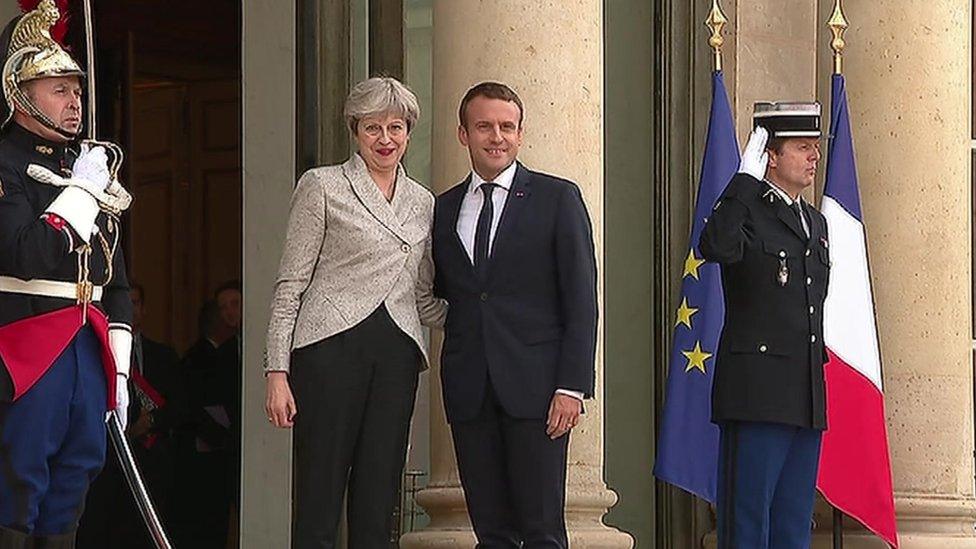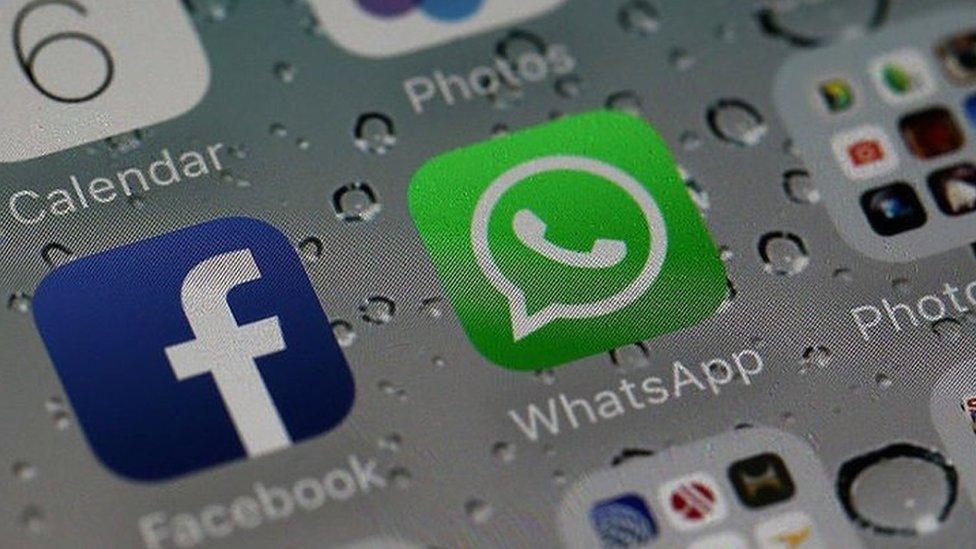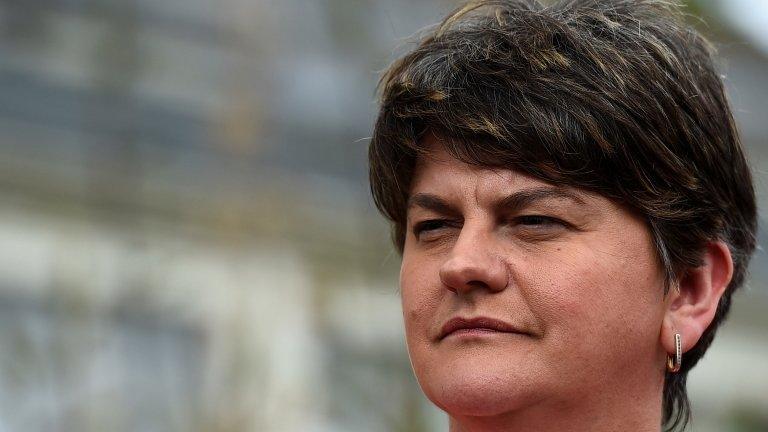UK and France to work together to tackle online extremism
- Published

The UK and France will launch a joint campaign to push internet companies like Facebook and Google to do more to remove terrorist material.
Announcing the move in Paris, Theresa May said the internet must not be "a safe space" for extremists.
Speaking alongside President Emmanuel Macron, she said they would also look at proposals to fine social media firms if they fail to take down such content.
It is the PM's first foreign trip since losing her majority at the election.
It comes as UK officials gear up for the start of Brexit talks on 19 June - Mrs May confirmed those negotiations would begin on time despite the unexpected election result and the ongoing talks with the DUP to shore up a minority Conservative government.
Both France and the UK have faced multiple terror attacks in recent years. Three French citizens died in the attack on London Bridge earlier this month, and a British man, Nick Alexander, was killed in the attack on the Bataclan concert hall in Paris in November 2015.
Mrs May and Mr Macron had a working dinner before travelling to the England v France football friendly at the Stade de France, where there was a minute's silence before kick-off to honour those killed in the Manchester and London attacks.
At their joint press conference, Mrs May said the UK was already working with internet companies "to stop the spread of extremist material that is warping young minds".
But she said she and President Macron agreed those firms must do more "and abide by their social responsibility to step up their efforts to remove harmful content".
The joint UK-French campaign will explore options for creating "a legal liability" which would allow companies to be punished if they fail to take steps to remove terrorist content.
More meetings would be held in the coming days between the UK home secretary and the French interior minister to push forward those plans, the PM added.
Mr Macron said they wanted to "strengthen the commitment" of internet companies to removing extremist material.
'More responsibility'
The Metropolitan Police's head of counter-terrorism Mark Rowley echoed the prime minister's concerns that terrorist material was too easily accessible online.
Writing in the Times, Assistant Commissioner Rowley said: "We need communities to be more assertive at calling out extremists and radicalisers amongst us. It's not just overseas propaganda inspiring attacks.
"And we need communications and internet-based companies to show more responsibility.
"It is too easy for the angry, violent or vulnerable to access extremist views, learn about attack methodologies, conspire on encrypted applications and then acquire equipment to kill, all online."
Mr Rowley said "an internet going darker" was making it harder to look into people who may be of concern, but he welcomed Theresa May's efforts to look at strategies for dealing with extremism.
The government's independent reviewer of terrorism legislation, Max Hill QC questioned whether heavy fines for tech companies that failed to take down extreme content was "absolutely necessary".
He told BBC News: "I've sat with the relevant police unit as they identify extreme content. I've seen them communicating with tech companies and I've seen the cooperation that flows from that.
"It's a question of the bulk of the material rather than a lack of cooperation in dealing with it."
Google says it already invests heavily in combating abuse on its platforms and is working on an "international forum to accelerate and strengthen our existing work in this area".
Facebook has also insisted it works "aggressively to remove terrorist content from our platform as soon as we become aware of it".
Twitter says "terrorist content has no place on" its platform.
- Published5 June 2017

- Published13 June 2017
